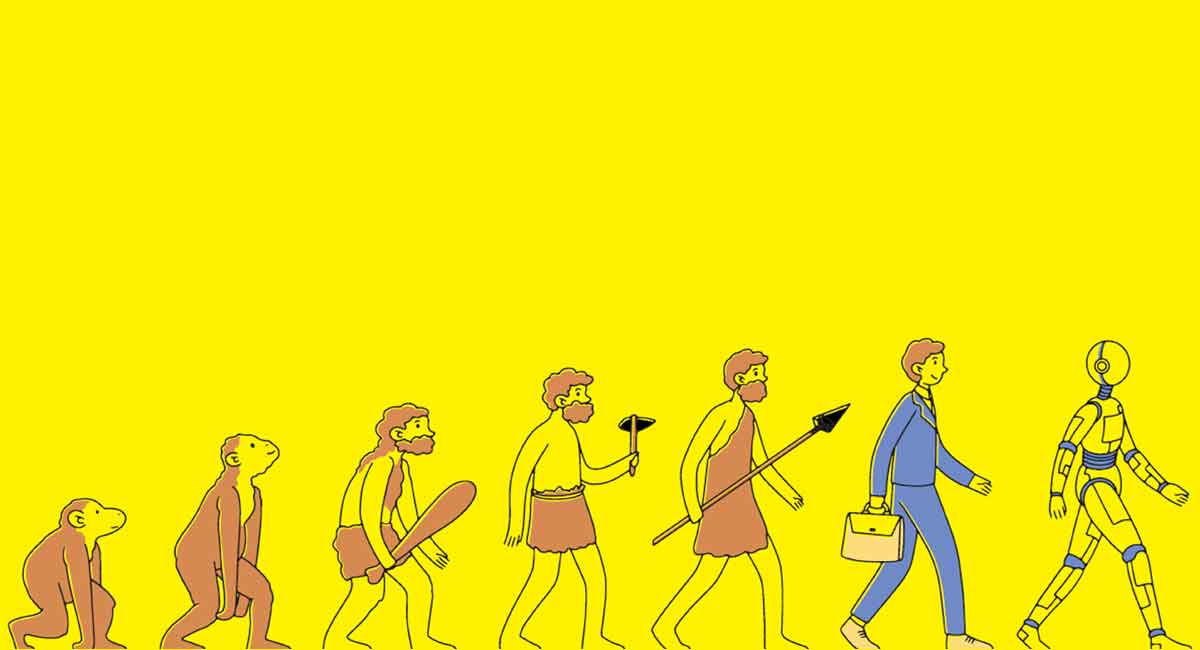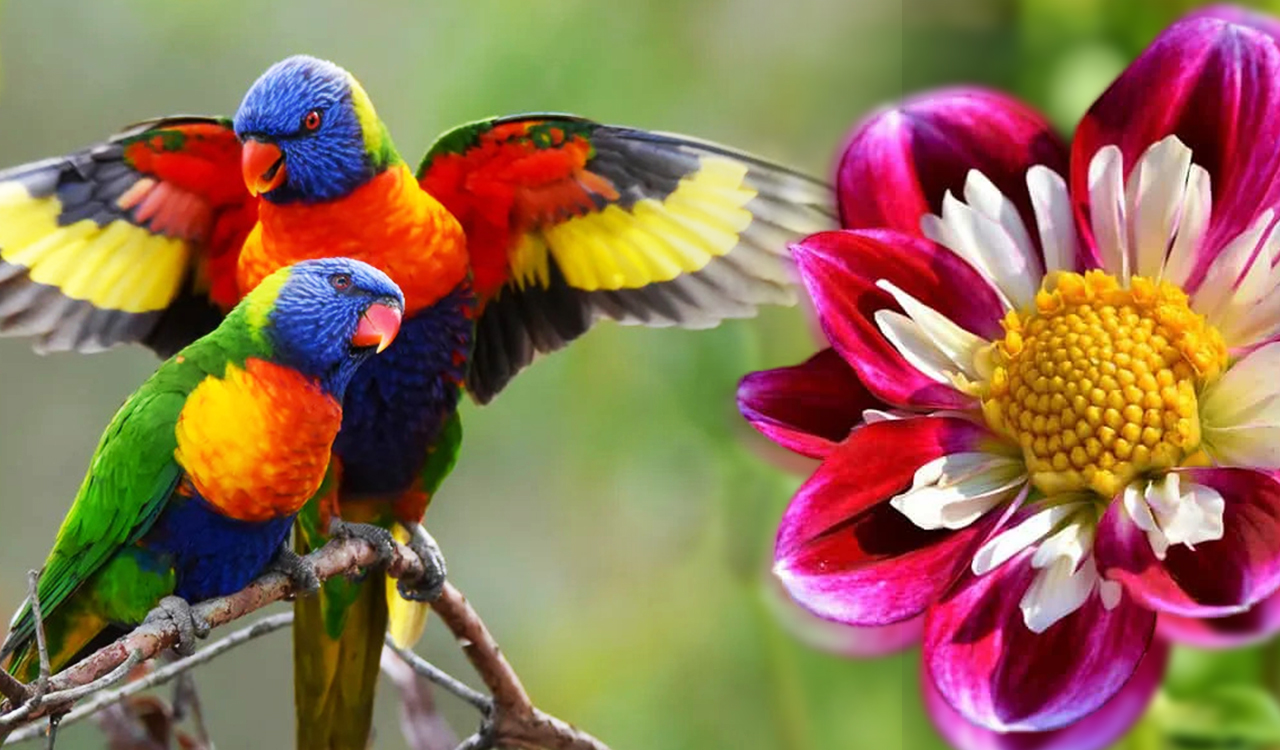Opinion: Evolving ideas of personhood
By Pramod K Nayar Charles Darwin enabled (or troubled) us to rethink our origins — without asking, of course, whether the apes were even impressed by this connection — and our lines of descent. Theological and mythic creation stories apart, this evolutionary theory remains the single most influential account of life on earth. This story […]

By Pramod K Nayar
Charles Darwin enabled (or troubled) us to rethink our origins — without asking, of course, whether the apes were even impressed by this connection — and our lines of descent. Theological and mythic creation stories apart, this evolutionary theory remains the single most influential account of life on earth. This story of Darwin’s, however, is related primarily to the biological realm. And contemporary posthumanist thought has brought up specific questions about descent, evolution and genealogy.
Differently (Re)produced
‘Descent’ and ‘evolution’ are deemed to be about biological transfer, linkage and growth across generations of life forms. Every generation creates and transfers materials from itself to the next. This implies that ‘descent’ means biological descent. But what of beings, descendants and creations that are differently (re)produced?
When in 1818 Mary Shelley’s ‘monster’ (it is just called that in the novel) asks his creator, Victor Frankenstein why he, the monster, was not Frankenstein’s Adam, the first major moment of posthuman evolution had made its literary and thematic appearance. Why would the monster, created by a human albeit through a different reproductive process, not be a descendant?
Laying claims to descent, to lineage and familial lines, the creature/monster is pointing to the troubled idea of ‘descent’. Created in a laboratory, the creature/monster lacks, in his creator’s view, a right to claim biological descent. As a consequence of his rejection at the hands of his creator, the monster rants:
‘Hateful day when I received life!’ I exclaimed in agony. ‘Accursed creator! Why did you form a monster so hideous that even you turned from me in disgust? God, in pity, made man beautiful and alluring, after his own image; but my form is a filthy type of yours, more horrid even from the very resemblance. Satan had his companions, fellow-devils, to admire and encourage him; but I am solitary and abhorred…’
The problem, as many critics have noted, is the ethics of creation, but more than the ethics, it is the problem of evolution and descent: can we say the creature/monster, produced by the human, is a descendant?
Multiple Descendants
Now, in an age where technology allows multiple forms of descent, the subject has become even more complicated. The philosopher David Roden writes: “Speculative posthumanists claim that descendants of current humans could cease to be human by virtue of a history of technical alteration.” Elsewhere, he adds: “Posthumans in this sense are hypothetical wide ‘descendants’ of current humans that are no longer human in consequence of some history of technological alteration.”
That is, as germline modifications become a norm through genetic engineering and methods such as cloning become cheaper, would we be able to say with certainty that whatever emerges in the year 10522 as a result of continuous pharmaco-technological interventions is ‘human’ at all? In 10522, that is, the form that emerges/evolves would be unrecognisable as the human of 2022, complicating what we mean by the human, and human descent at all. Would such beings be qualified as ‘our’ descendants?
Roden, therefore, proposes that we speak of ‘wide’ descent: “The notion of descent is “wide” insofar as the entities that might qualify could include our biological descendants or beings resulting from purely technological activities (eg, artificial intelligences, synthetic life-forms, or uploaded minds).”
Clearly, Roden is pondering over the nature of life first and evolution second. Would the term ‘life’ be adequate to describe the rise of these beings, the products of our technological loins and laboratory wombs? Would ‘reproduction’ be sufficient to describe the process? And is what(ever) emerges a descendant?”
The reason why these questions are seriously challenging is because we remain rooted in specific definitions of the human. But as robo sapiens, AIs and other such products of human efforts populate the earth, on what grounds do we delimit the notion of life or the human?
Life Itself
The MIT Encyclopedia of Cognitive Science writes under the entry for Artificial Life: “The claim that even virtual creatures in cyberspace could be genuinely alive is called Strong A-Life. . . . [M]ost reject the view that such creatures can be alive in just the same sense that biological organisms are, but allow that they are, or could be, alive to a lesser degree.” This means, other definitions and alternatives to ‘life itself’ are being proffered.
Does life require material/biological embodiment? The life-like in AI with its cognitive abilities and diversity approximates life itself. If these are descendants of the human, why would they not be life minus the biological? If, as cognitivists now argue, even thinking and consciousness are beyond the (biological) brain, would not such a ‘creature’ of the laboratory and the computer chip — both products of the biological human’s creativity — be a descendant?
Whether cyborgs are persons is a question we will need to resolve sooner rather than later, since we are becoming cyborgs ourselves. The philosopher Aleksandra Łukaszewicz Alcaraz proposes the rise of ‘allo-persons’:
“Allo-human persons are then acting in continuity with human persons, performing (to a certain degree of accuracy) as human persons … ‘allo-human person’ … embraces different hybrid beings created in natural-cultural processes, that are building up communication, morality, ethics, and society, and who are like — but not identical to — humans.”
We cannot restrict the idea of personhood – even the legal idea of it — to biological humans alone. Such allo-persons and cyborg-persons may be necessarily treated as ‘full-fledged agents possessing certain kinds of ethics and morality, which are not unchangeable, but which are adequately adjusted to the changing times, as it is also in the case of human agents’.
Life needs a redefinition.

(The author is Professor, Department of English, University of Hyderabad)
Now you can get handpicked stories from Telangana Today on Telegram everyday. Click the link to subscribe.
Click to follow Telangana Today Facebook page and Twitter .
Related News
-
Odisha government reviews protection of Lord Jagannath temple lands
4 hours ago -
Iran holds military drills with Russia as US carrier moves closer
4 hours ago -
This is taxpayers’ money: Supreme Court raps freebies culture
5 hours ago -
Hyderabad: Residents oppose Gandhi Sarovar Project over ‘forcible’ land acquisition
5 hours ago -
Australia level series as Indian women slide to 19-run defeat in second T20I
5 hours ago -
Karnataka beat Uttarakhand in semis, to face Jammu and Kashmir in Ranji final
5 hours ago -
Five Osmania varsity players in South Zone squad for Vizzy Trophy
5 hours ago -
Disciplined West Indies bundle out Italy with ease, tops Group C in T20 WC
5 hours ago




